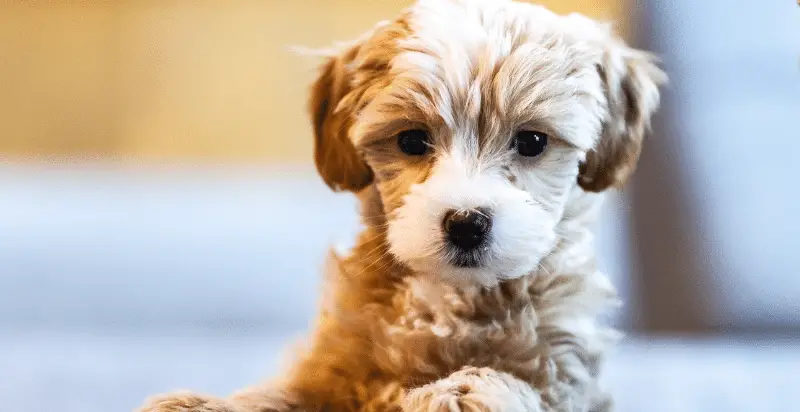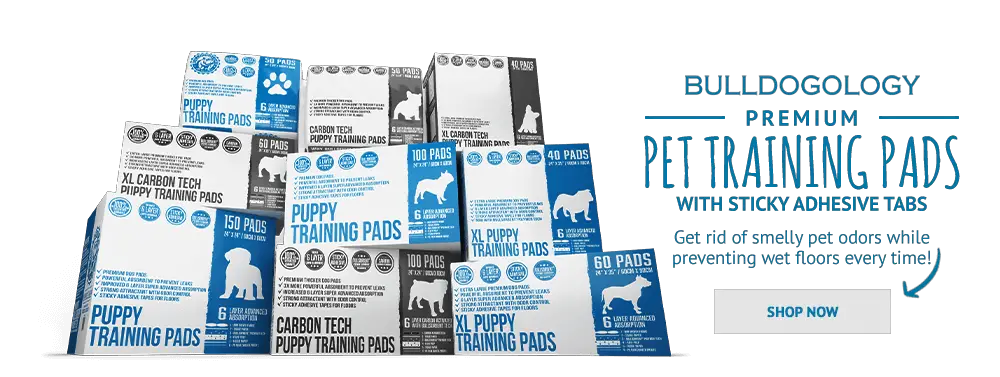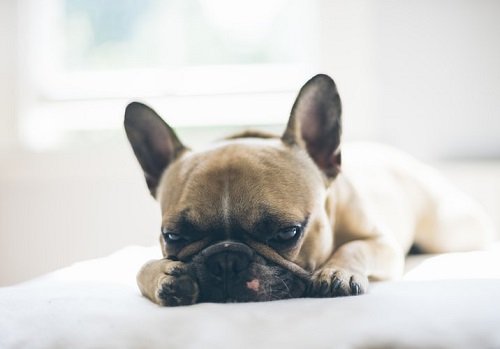How to Discipline a Puppy While Potty Training

Every fresh pet parent must thoughtfully consider the methods to discipline a puppy when initiating housebreaking, before starting this adventure.
Before you start potty training your new puppy, you must (1) become familiar with some basic training information and (2) establish a firm leader-follower relationship which will make it easy for your puppy to follow commands.
You see: puppy potty training can take as little as a week or as long as a lifetime if you don’t take it seriously. That does not, however, mean in any way that you should resort to hitting or abusing your pet.
There are numerous ways how to properly discipline and reprimand a puppy without resorting to physical punishment.

Best Ways to Discipline your Puppy While Potty Training
Start from Day One
To prevent potty training problems from arising, it helps to establish some ground rules right from the start – from the moment your puppy enters your home.
This is one of the best ways of disciplining a puppy so you can get started on your way to housetraining success.
Keep a Positive Attitude
Keep in mind that it takes years for a human baby to learn how to use the toilet, and yet, people expect puppies to learn discipline and control within a few weeks.
The more positive your attitude is, the faster your puppy will learn.
Consider your Pet’s Age and Physical Condition
Always consider your puppy’s age before you start dog discipline training. After all; he/she should be physically ready for the process.
Most puppies come to their new homes when they are about 8-10 weeks old. At this point, they are missing their mother and littermates and are also very young to control their bladder all through the night.
If your puppy is even younger (less than 8 weeks of age), then you are asking her/him to do something that they are physically incapable of doing.
This does not mean that you should not start the groundwork for potty training. You can set up a puppy potty training schedule even when your pet is about 6 weeks of age but also be mentally prepared for less-than-perfect compliance, at least until your pet begins to appreciate what is expected of it and until it is physically capable of fulfilling those expectations.

Discipline Yourself!
There is no way around this. The best way how to properly discipline a puppy is to discipline yourself. This means getting used to the fact that you have to put in some work.
We are talking about taking your pet to the designated pee area (either in your yard or outside or on dog training pads).
If you work all day, get someone to handle this task for you. Otherwise, you may want to consider taking a week off work or work from home if possible.
This is the only way to get disciplined dogs which all pet parents dream of.
Laziness in this aspect will only cause your puppy to have more indoor accidents and will take her/him longer to learn to eliminate outdoors. Your puppy will think that all other places in the house are acceptable alternatives to its outside toilet.

Act Quickly!
The more often you catch your pet before s/he eliminates indoors, the more quickly they will associate outside and the grass with the potty.
Clap your hands when you see your pet circling around or sniffing. You can also make a loud noise to distract your pet. This will stop your pet in its tracks.
Quickly take her/him to the designated spot or on the potty-training pads and let them finish their business.
Praise and treat your puppy immediately after they have eliminated in the right spot. This will make a positive reinforcement and help them learn the accepted behavior quickly.
To Punish or Not to Punish Your Puppy

Never Punish!
Punishing does not work for the simple reason that it could make your puppy aggressive, shy, or terribly scared.
Punishing your dog for accidents can also actually make them more prone to having them.
If you punish your pet after it has peed indoors, it might not even understand what it is actually being punished for.
The bottom line: Focus on rewarding good behavior instead of punishing for accidents!
What to do When Dog Won’t Listen?
When it comes to puppy potty training, this rarely happens that a young dog won’t listen to its owner.
You see: puppies are like sponges – they absorb everything around them and are willing to listen to you, their alpha.
So, be firm, be consistent, and be patient.
Praise, treat, reward, repeat.
Use this mantra for ensuring successful housetraining of puppies and proper discipline in dogs.

Key Takeaways on How to Discipline a Puppy when Potty Training
The best answer to the question: how to discipline a puppy when potty training is to use love, consistency, patience, and positive reinforcements.
Disciplining a puppy especially means disciplining yourself first.
Set aside a strict puppy potty training schedule.
Take your young puppy outside for potty breaks several times a day until it learns to control its bladder.
Young puppies look up to you for teaching them and disciplining them. They will do what you ask of them as long as you show them what needs to be done.
Praise treats, and plenty of love are the best ways to discipline a dog without hitting. With this formula, you will definitely see success within a short period of time.
Do check out our detailed guide on puppy housetraining here.
